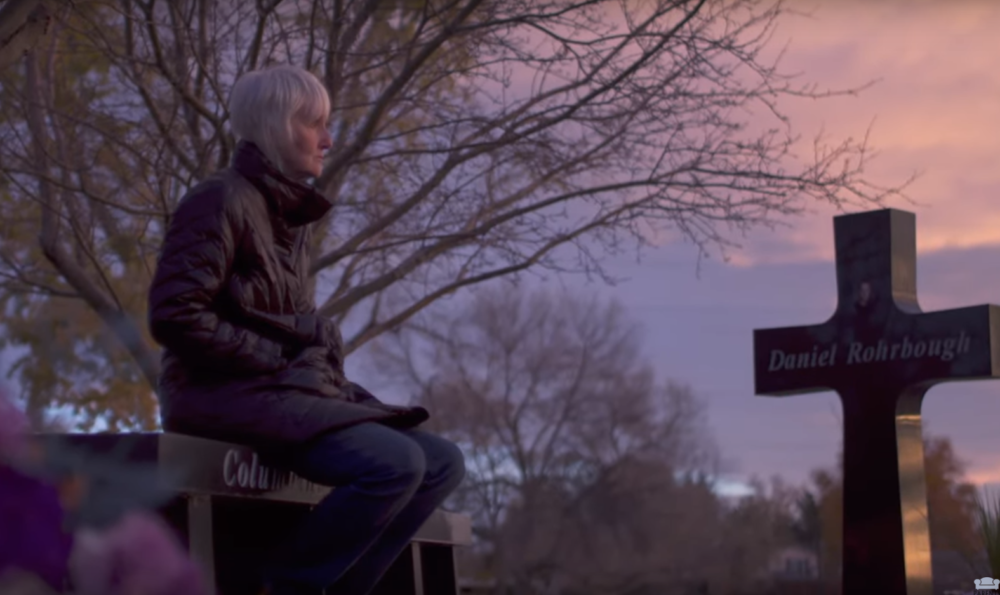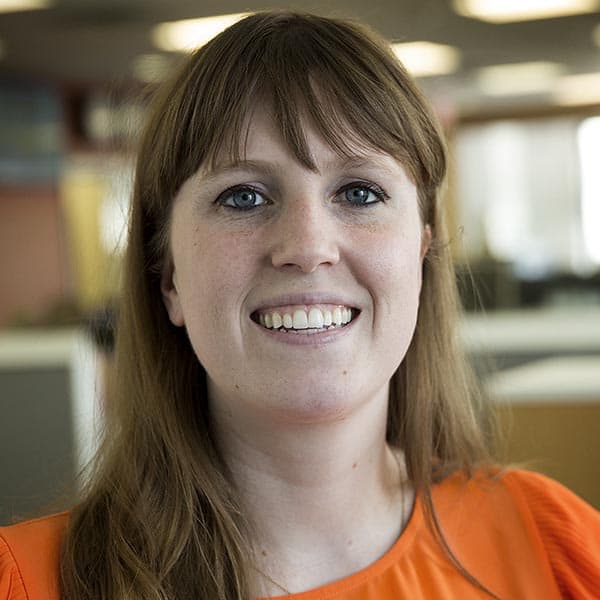Advertisement
'American Tragedy' Examines What A Mother Of A Columbine Shooter Has Learned 20 Years Later
Resume
Twenty years ago, on April 20, 1999, two high school seniors barraged into their high school, Columbine High, and killed 13 people.
The shooters, Eric Harris and Dylan Klebold, both died by suicide.
Columbine was the beginning of a rapid rise in school shootings and there were many questions after the massacre, some of which fell on the parents of the shooters. How could those parents miss that their children were plotting the attack?
The documentary, "American Tragedy," which premieres at the Boston Film Festival, tries to answer some of those questions.
It profiles Sue Klebold, Dylan Klebold's mother, and examines what lessons Americans should take away from the tragedy.
"American Tragedy" premieres at the Boston Film Festival on Thursday at 7 p.m.
Radio Boston host Tiziana Dearing discussed the documentary with both Sue Klebold and Josh Sabey.
Guests
Josh Sabey, Boston-based film director.
Sue Klebold, mother and activist.
Resources: You can reach the National Suicide Prevention Lifeline at 1-800-273-TALK (8255) and the Samaritans Statewide Hotline at 1-877-870-HOPE (4673).
Interview Highlights
Sue Klebold on accusations and blame
"In those early months, I was so bewildered and so heart broken, I didn’t really have any blame because I was simply trying to understand what had happened, how my son came to be there, because I was really in a lot of denial about his being there. Because the Dylan I knew and loved would not do something like this. He was kind and he was funny. I wasn’t experiencing blame, I was just experiencing heart break, and humiliation, and terror because of all the hatred being leveled against us."
"About six months after the tragedy, the sheriff’s department released a report. And I remember when I went to this report. I had a notebook with me and it had all these questions, about “How did Dylan get to be there?” “Who convinced him to do this?” and what I learned from that shocking report was that this had been planned, that he had been a willing participant, that their goal was to kill everyone – kill everyone in the school – and I just remember at that meeting I being almost physically ill. I remember at one point standing up and trying to decide if I needed to run out of the room or not. It was really… it put me into a flight mode. I just could hardly bear what I was hearing. So it was a shock and it really caused me to tear down everything that I’d been clinging to and really start the grief process all over. Because people had been calling my son a monster, and for the first time I think I really understood how monstrous it was."
Sue Klebold on reflection and lessons from Columbine
"I think over 20 years, there are probably more lessons than I can count. One of the very important lessons I hope we have learned or that we are beginning to learn, after the Columbine tragedy it was the beginning of 24/7 news coverage. Without knowing it, that launched and kind of cemented Columbine into our consciousness as a symbolic gesture of good and evil, and really this is not the case when something like this happens. It is about many things that converge.
"Certainly, I have learned over the years that to understand how a tragedy such as this happens, we can never say it’s because of one thing. It is not because bullying, of videogames, of psychiatric medications. It’s never one thing. We don’t have to be able to predict who is going to commit some kind of a violent act, but we can certainly prevent – for example we have learned that school shooters very often are suicidal – and my own son, I learned after his death, had been suicidal and was writing about it. If we could have addressed his suicidality, I truly believe we might have prevented at least his involvement in the tragedy."
Josh Sabey on reflections and lessons from Columbine
"I think Sue’s story is particularly interesting on this point, because she was completely surprised. She was as surprised as the rest of us. She’s gone through her past, she’s talked about going through every possible interaction she remembers, trying to find something and she has discovered some things. She discovered her son was depressed – she didn’t know that. She discovered that he was deeply suicidal – she didn’t know that. Maybe what’s so surprising is that there wasn’t something obvious, there weren’t these obvious signs that she should have spotted. So the question of the documentary becomes how do you stop something that’s so invisible so often?"
Josh Sabey on mental health
"I think we came into it interested about this topic. I don’t think we knew the answers we would get. Lots of people are scared their child might be a school shooter, that’s a very small possibility. And it’s even a small possibility you kids will be in a school shooting. But it’s a very large possibility that they’ll deal with something like depression and anxiety."
"These are things we can actually do things about and often prevent if we start early enough. Right now all of our resources are going into treatment – we have a treatment-focused model. Someone might develop almost invisibly – like Dylan – a mental illness, and we don’t even start treating it until it’s entrenched. But if we start beforehand and we start teaching mental health skills, we can have a much better outcome. We can have targeted campaigns that teach parents how to teach skills how to deal with anxiety – breathing skills, mindfulness skills – skills that can make a huge difference in their life and are proven to prevent anxiety and depression in our children."
Sue Klebold on mental wellness advocacy
"When I learned that Dylan had written in a journal two years prior to his death that he was in agony and wanted to die and was cutting himself, I was so shocked to hear that... I couldn’t believe that while I was experiencing what seemed like a normal and fulfilling life, he was suffering so greatly. What we have to be careful of is that not everyone who experiences depression is suicidal and not everyone who is suicidal is depressed, it is far more complicated than that."
"We want to be careful before we even start the discussion… we don’t yet know enough about these boundaries that get crossed when someone is on a path towards self-destruction, so we must be very careful about pinning all the blame on mental illness when we talk about tragedies such as this."
Josh Sabey on the pressure on parents
"I think it’s much more stressful to be sitting as a parent, wondering I hope I love my kids enough, I hope I’m being a good parent in this abstract idea… it’s much more reassuring to feel empowered with things that are proven to help kids avoid common problems, like depression, like anxiety, and to know that there are things that can be taught."
Josh Sabey on the film not discussing gun control
"We do mention it [in the documentary] that we should address it. It’s not the approach that we’re talking about in this documentary. I think what’s a tragedy is that these issues have been split up as “either or” instead of “both and” particularly because they inform and speak to each other. By far, the most number of gun-related deaths are suicides. So if we’re going to prevent gun-related deaths, we should be thinking about the mental health aspects of it. These issues are interrelated, they’re connected, and politically they’ve been separated and that’s really too bad."
Sue Klebold's message to families
"I believe the message that I have taken away from this and that I share with people is the subtitle of the movie and that is love is not enough. I think we believe that when we hug our children and tell them we love them that we are connecting with them, but I hope people will realize that someone’s internal experience on the receiving end of that love might be very different from what we thinking it should be and what we project it to be."
"…and I advise people all the time: stop talking and just allow our loved ones to feel what they feel, express what they are feeling, and help them deal with those feelings. I don’t think most of us do a very good job with that."
Derek J. Anderson adapted this story for the web.
This article was originally published on September 19, 2019.
This segment aired on September 19, 2019.


